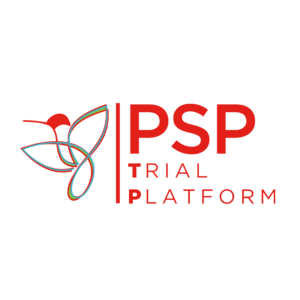
What is PSP?
Progressive Supranuclear Palsy (PSP) is a rare and progressive neurodegenerative disease for which there are currently no effective treatments. PSP is characterized by gradual neurological deterioration and volume reduction primarily in the brainstem, cerebral cortex, cerebellum and basal ganglia leading to severe impairment of motor function, balance, behavior, and eye movement.
What is a Platform Trial?
Platform trials test multiple therapies or investigational products against one shared placebo group. As such, they allow for much to be learned in the most efficient manner. A single protocol will be used, with a shared placebo group, which means more participants can be randomized to treatment groups, significantly increasing the odds that any individual participant will receive a study treatment rather than a placebo. There are also significant savings in time and cost of the study.
What is the PSP Clinical Trial Platform and How Can it Help?
Some therapeutic approaches currently being tested for Alzheimer’s Disease (AD) and amyotrophic lateral sclerosis may prove promising for PSP.
The goal of the PSP Clinical Trial Platform (PTP) is to conduct a Phase 2 randomized, placebo-controlled platform trial in mild-moderate PSP that will test at least three different tau-related or neuroprotective therapies to determine safety, tolerability and clinical proof of concept for these therapies.
If successful, the PTP Trial will provide crucial information regarding the ability of three therapies to slow clinical disease progression and brain volume loss in PSP and will create a large amount of new data to share with other researchers to help develop new PSP diagnostic tests and therapies in the future.
ACTC Solution
PTP has been developed by the researchers with the most expertise on PSP and leverages the experience of ACTC in trial design and conduct. Public-private partnerships are currently being developed with the companies that will provide investigational products and study support





